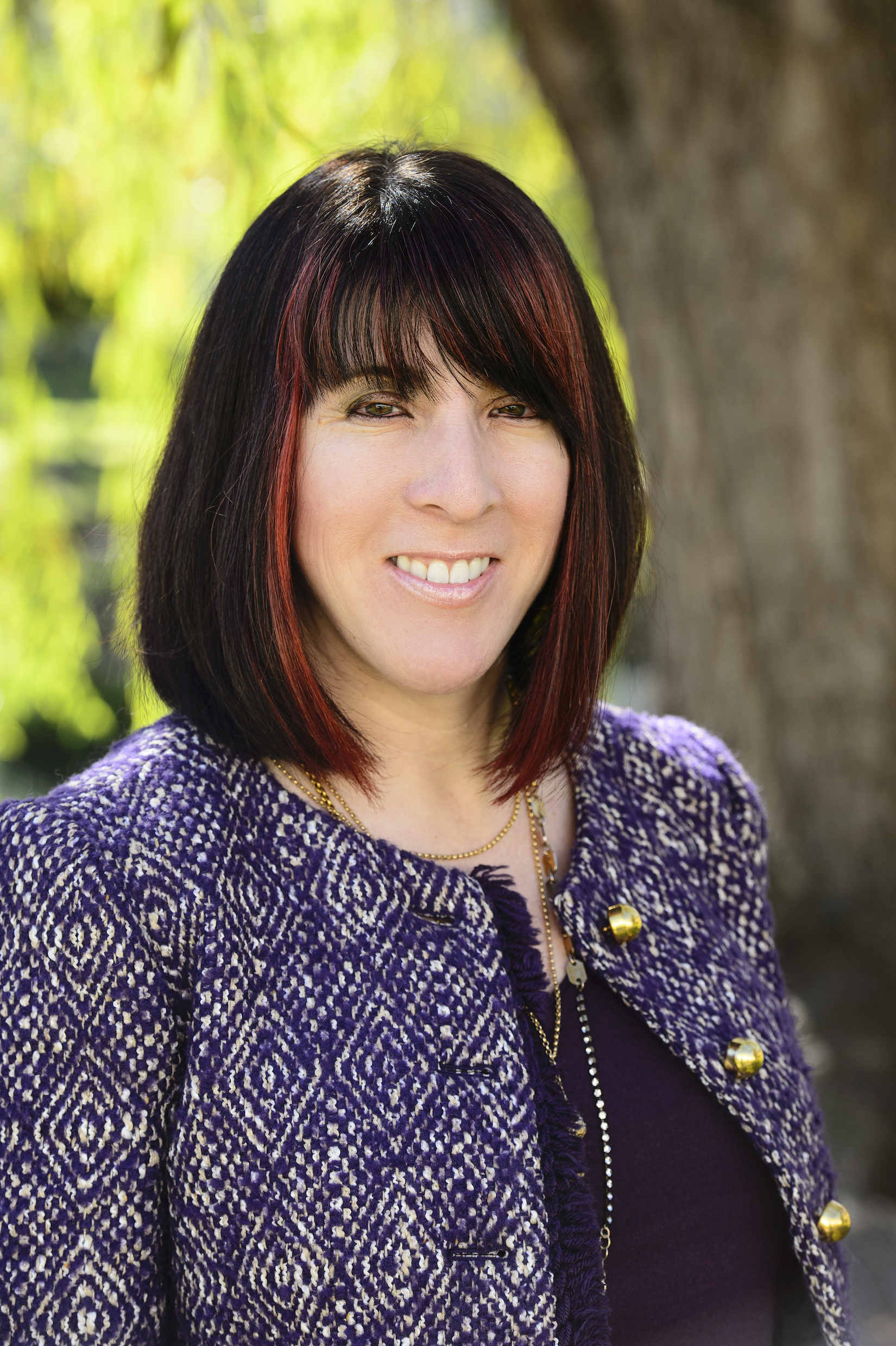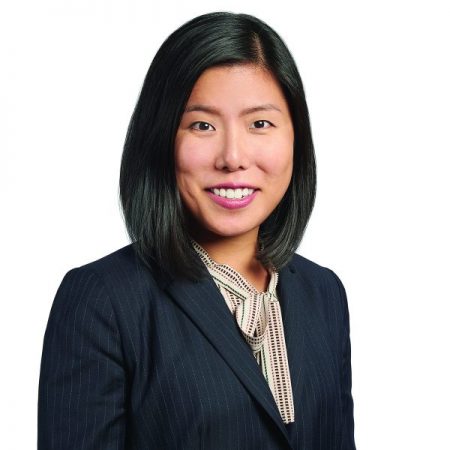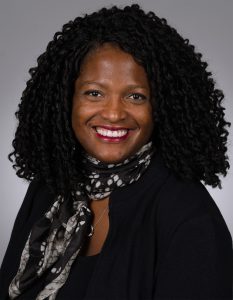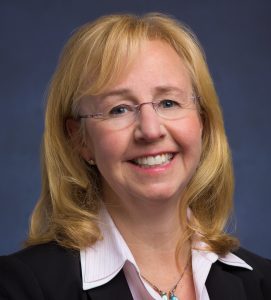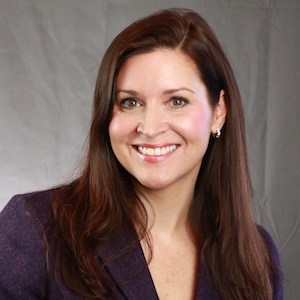 Never check your bag. Those words of wisdom have stuck with Virginia Johnson throughout her legal career since one of her first business trips as a first year associate. Traveling with a senior partner to embark on a lengthy trip, she arrived at the gate and when he asked where her suitcase was, he was shocked that she had checked it. “’Didn’t anyone ever teach you Associate Travel 101?’ he asked me.” Fortunately for Johnson, the bag quickly emerged from baggage claim as expected, but the advice has stuck with her…fast forward over 15 years and it still rings true, she says.
Never check your bag. Those words of wisdom have stuck with Virginia Johnson throughout her legal career since one of her first business trips as a first year associate. Traveling with a senior partner to embark on a lengthy trip, she arrived at the gate and when he asked where her suitcase was, he was shocked that she had checked it. “’Didn’t anyone ever teach you Associate Travel 101?’ he asked me.” Fortunately for Johnson, the bag quickly emerged from baggage claim as expected, but the advice has stuck with her…fast forward over 15 years and it still rings true, she says.
Wearing Many Hats Creates Exciting Opportunities
Of course, that’s just one small, but colorful, piece of advice that has helped propel her successful career. Johnson started as a corporate lawyer in 2002 at a large international law firm, Weil, Gotshal & Manges LLP, where she served as a securities and complex commercial litigator for nearly 9 years. She transferred from New York to Boston during her time at Weil, and eventually moved to a smaller Boston-based firm as a partner, where she could build her own book of business in an entrepreneurial environment. In 2012, she came across an opportunity to join the legal department of a wholly owned subsidiary of Goldman Sachs, and as she had always been intrigued by the idea of going “in house,” she made the leap.
Since its spin-out from Goldman in 2013, the company, which rebranded as Global Atlantic Financial Group, has dramatically transformed itself, in ways that Johnson says makes it “feel like it’s been 20 different jobs.” There, she currently heads up the corporate legal group and oversees just about everything a corporate legal department would need to handle, including contracts, licensing, cybersecurity, data privacy, litigation, employment, intellectual property, governance, risk, strategic transactions, cross-functional projects, business integration, and more.
She loves her current role where she can serve as a legal advisor but also assist with developing and shaping business strategy. “I am proud that I have been able to cultivate such a rewarding career, but also that I have built a reputation as a dependable problem solver in many contexts—a seasoned generalist who can jump into different types of situations,” she says. “As my expertise has adapted, I’ve been tapped by numerous leaders and have been able to expand my skill base. Business partners often tell me that if they don’t know who to call, they call me, as I have become known as somewhat of a ‘fixer,’ someone who can take on anything and just figure it out.”
Currently that covers leading her company’s response to the coronavirus pandemic, including introducing new initiatives, advising the business on legal risks and regulatory compliance, and conducting analysis of workplace safety logistics, company policies and procedures, employee benefits, and other aspects. While she acknowledges it is challenging, she also sees it as a chance to feel positive about something that is otherwise tragic. “Working on our response efforts is a way I can pour myself into the crisis and make a positive impact,” she says. “Most importantly, we are making sure we’re being flexible, fair and caring to our team and our customers.”
Johnson also is involved in a number of technology initiatives at Global Atlantic, an area for which she has a personal passion. This is a time like no other, she says, to spotlight the importance of innovation. “I have seen attitudes change almost overnight toward remote work and the urgency of digitizing our business capabilities, and it’s vital to embrace it, not be afraid of it. This forward-thinking attitude is critical to the future of our workplaces.”
Building Relationships and Learning on the Job
While Johnson says that sponsors can play an integral role in a career she also sees the benefits of networking at all levels.
“During my undergraduate studies and law school, I believed that if you simply buckle down and work hard, that would be enough, and by becoming a subject matter expert, people will seek you out. But now I know, it’s more than that: You have to network and build relationships,” she says, adding that she makes sure to tell her mentees not to underestimate the value of your network and to begin to grow those relationships immediately in your career. Too many times she has seen people focus exclusively on their work, and then find years later that they are building those relationships from scratch.
She credits her career transitions with seeking out and nurturing connections that would pay off in years to come. Success in the world of law entails a blend of talent and effort, along with some luck, she says.
As she considers the many mentors she’s had, the traits she admires most are having a mastery of skills and a devotion to excellence, while still maintaining a life outside work and a sense of humor. “These things aren’t mutually exclusive,” she explains. And, she appreciates those who put a premium on diversity in hiring and foster an environment where people can offer divergent opinions and dissenting views.
Johnson is proud of helping found a women’s network, which has become a firmwide presence at Global Atlantic, offering a large network across all the offices. Acting as a senior sponsor, she finds the most rewarding part has been the ability to empower younger professionals as “office champions” to plan events and initiatives. She sees it as a way to both retain talent and attract new professionals.
A Full Life Inside and Outside Work
In addition to her mentoring work within the company, Johnson is active in external mentoring with Big Sisters and Mentorloop, a virtual networking site that matches pairs according to interests. While she has spent much of her career in the financial services industry, she is an innovation enthusiast who loves learning about emerging technologies, and she often attends tech-focused events and peer chats to satisfy her curiosities.
Johnson also loves music, film, theater, and travel, and looks forward to resuming those activities after the pandemic clears. Since working from home full-time during the coronavirus outbreak, she has enjoyed being able to exercise more, favoring virtual boxing classes and yoga. And she treasures time she can spend with family, friends and her pets. “It’s important to have a well-rounded life outside of work. It gives you valuable perspective in making business decisions and also when you’re done with the workday.”

